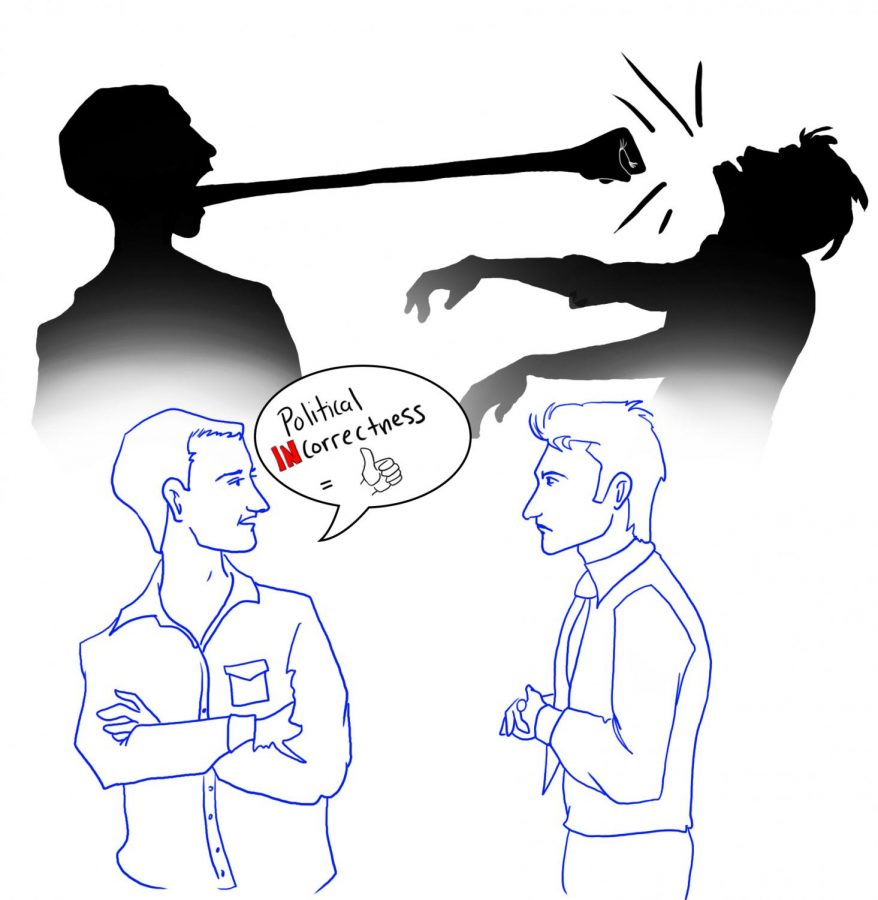Times are always evolving as the next generation starts to enter the workforce. Norms have changed as well as language. Politically correct language is one of those new changes we are now seeing.
The term “politically correct” has been around since 1793 when the U.S Supreme Court made a decision regarding the boundaries of federal jurisdiction. Since then a variety of definitions have been added to the term and a variety of oppositions have also surfaced.
Our own president has said that he does not have time to be politically correct nor does this country have the time. He went on and stated that a majority of Americans thought people were too easily offended and that “political correctness” was one of the country’s biggest problems.
Since then we have seen a variety of arguments opposing politically correct language. Even universities have taken a stand against being politically correct. The University of Chicago sent out their welcome letter to the incoming freshman with a different approach this year. The dean of students stated that, “Our commitment to academic freedom means that we do not support so-called trigger warnings, we do not cancel invited speakers because their topics might prove controversial, and we do not condone the creation of intellectual ‘safe spaces’ where individuals can retreat from ideas and perspectives at odds with their own.”
In my opinion, this sort of reaction to this movement makes no sense. According to Merriam-Webster Dictionary political correctness is conforming to a belief that language and practices which could offend political sensibilities (as in matters of sex or race) should be eliminated. We have since added to what political sensibilities are as well, such as culture and disabilities.
So this movement is asking for society to remove or change the language that has offensive connotations and the fact that people are upset over this honestly makes no sense. It is so easy to change your vocabulary, we do it all the time whether we are in a professional setting or talking to family we easily remove words that are not appropriate for our audience.
If our language has become offensive why would we want to continue using it? Instead, we are labeling people and groups who advocate for politically correct language as “snowflakes,” which has been used as an insult towards the hypersensitivity the new generation supposedly carries.
Opposers to this movement are literally getting angry over the fact that they can’t be completely open anymore about their use of offensive language. Complaining and calling this generation “snowflakes” as if sensitivity is a negative thing.
The fact is that language and norms will continue to always change, the generation before our parents have seen an abundance of change in language used towards African-Americans. Yes there was opposition to that then and there still is but the bottom line is those opposing change will be left behind. One must evolve with the times especially if the change is simply switching your vocabulary.
Nicte Hernandez can be reached at opinioneditor@theorion.com or @nicteh7 on Twitter.







paraic // May 1, 2018 at 10:02 pm
I agree that we should all strive to treat each other kindly and use words that don’t hurt people’s feelings. It’s a good point you make that we have indeed changed language in our past which has become socially unacceptable today, and that is mostly for the better. I think this issues touches much more deeply than the opposers of the movement “making no sense” or as stated in the podcast: that they are merely uneducated, stubborn or too lazy to learn the new norms. That may be true for many people but there are plenty of open-minded educated people opposing this too, or at least opposing where it is leading.
“So this movement is asking for society to remove or change the language that has offensive connotations and the fact that people are upset over this honestly makes no sense.”
So what does asking society to remove or change language entail? Censorship? Laws that restrict language? Who makes the rules about what can and can’t be said? And how should that be enforced?
I agree it is good to be inclusive, welcoming and not oppressive with language as well and I try to make an effort to do so myself. I also don’t think it’s as simple as one side is educated and compassionate while the other is dumb and mean. Addressing the possible costs of that suggestion to remove language would be a good way to get a conversation going with the “uneducated”, “lazy” and “stubborn” straw men who “make no sense” and who “are literally getting angry over the fact that they can’t be completely open anymore about their use of offensive language”.
Jeff Greene // Apr 25, 2018 at 3:26 pm
Prominent conservative speakers like Condoleezza Rice have been dis-invited from commencement ceremonies in the name of “Political Correctness”. Political correctness is no longer about etiquette and being polite. Political correctness is now being weaponized to silence the voices of anyone who deviates from progressive political ideology. Sad!